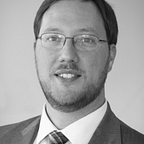On Antonin Scalia and ‘Back Row America’
Photographer Chris Arnade recently wrote Dignity, the book-length culmination of his journey through “Back Row America.” He summarizes it in a new First Things essay, and one part in particular jumped out at me: his discussion of churches in the daily lives of the men and women he visited.
For many back row Americans, the only places that regularly treat them like humans are churches. The churches are everywhere, small churches that have come in and taken over a space and light it up on Sundays and Wednesdays. They walk inside the church, and immediately they meet people who get them. The preachers and congregants inside may preach to them, even judge their past decisions, but they don’t look down on them. They have walked the walk and know the shit they are going through, not from a book, not from a movie, not from an article, not from a study, but from their own lives or the lives of their friends. They look like them, and they get them.
This is true and important. And it also called to mind a passage in another new book, Antonin Scalia on Faith, edited by Christopher Scalia and Ed Whelan. In an introductory essay, Fr. Paul Scalia describes his father’s fondness for the Latin Mass:
It was the Mass of his childhood, youth, and first years of marriage. At that Mass the faithful kneel at the Communion rail to receive Holy Communion. As they kneel, the priest walks along the rail and places the Host on their tongues. There is something wonderfully democratic about the Communion rail. It is no respecter of persons and reveals the fundamental equality of all God’s children. Everyone must adopt the same humble posture of kneeling. At the Communion rail the great variety of Christ’s faithful — rich and poor, learned and ignorant, old and young — kneel side by side, with no regard for their differences. The priest often encounters people shoulder to shoulder who would never otherwise be found together. So it was that I frequently found my powerful father — a “Supreme Justice,” as he liked to joke — kneeling next to, well, anyone. Perhaps the little girl who just made her First Communion, or the harried mother of a large family, or the out-of-work father, or the clerk from the grocery store. In short, next to ordinary people who neither knew nor cared about his important office. Dad appreciated that in the Church it didn’t matter how much he had accomplished or attained. As a Catholic he knelt for the Lord, like all the rest.
“Here comes everybody” was James Joyce’s description of the Catholic Church. Wrong about many things, he got this one right.
And each of these scenes, in turn, called to mind a song that Paul Weller wrote “Man In The Corner Shop” when he was in The Jam. His Ray Davies-esqe account of the intersecting lives of men of much different economic classes culminates with a view of the pews.
Go to church do the people from the area
All shapes and classes sit and pray together
For here they are all one
For God created all men equal
Over the years, much has been made of Justice Thomas’s annual summertime sojourn through the heartland in an RV, and how it lets him spend time with truckers and others far from Washington. He described it in a talk at the Heritage Foundation a few years ago:
We’ve been to a lot of different things. We’ve been out to the West; we like the mountains; we get down to Florida. But most of all you see the citizens of this country. An RV park is very, very democratic with a small “D.” It is some of everybody there … The truck stops—Flying J, Pilot—I run into people. … I love this stuff. I love the bus; I love the diesel stuff. I love the people. I love the truckers, everybody. I love it all.
This is one of my favorite things about Justice Thomas, being that I’m the grandson of a Teamster myself, and I’ve always loved truck stops. (Lately I gravitate toward TA, although Flying J, Pilot, and Love’s are great too. Though nothing beats Iowa 80, of course.)
But I digress. We’ve long known that Justice Thomas spends every summer in Back Row America. It hadn’t occurred to me that, in his own way, Justice Scalia spent every Sunday there, too.
